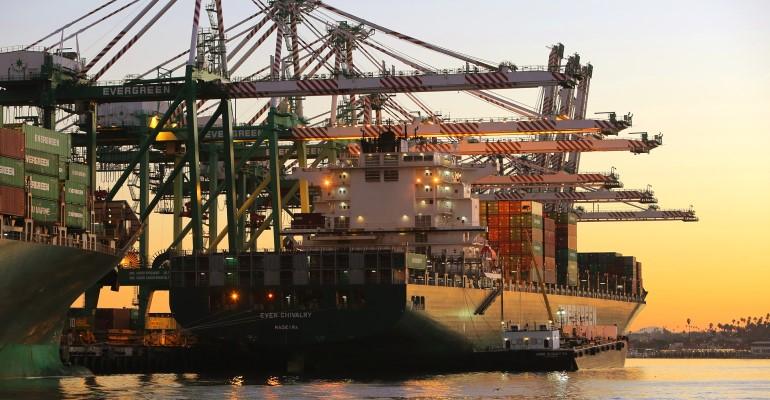
Freight rates on the Europe to Asia trades have begun to follow the wider container market down after a period of resistance.
According to a market update from freight rate benchmarking firm Xeneta, spot and log-term freight rates are beginning to fall after a sustained drop in volumes.
Leading fronthaul reefer route spot rates now sit at $4,240 per feu as of January 23, after holding above $5,000 per reefer for almost two years. Spot rates have dipped below contract rates for the first time since 2019, after a sharp fall in December, said Xeneta.
In comparison, long-term rates were just under $4,500, down from a September 2022 peak of $4,850 per feu.
“Spot rates falling below long-term contracts is a classic sign of a weak market,” said Peter Sand, Chief Analyst, Xeneta. “This is one of the world’s busiest reefer routes, with a strong rates track record, but even it is not impervious to the forces impacting on containerised freight at present.
“What we’re seeing is a prolonged decline in demand/volumes, especially to China, and that – in addition to easing supply chain congestion and available equipment and capacity – is translating to falling prices. We saw spot rates fall below long-term contracts on the main ‘dry’ trades back in August, and it looks like the refrigerated segment is now playing catch up. The surprise is arguably that the prices stayed so high for so long.”
Reefer volumes from Europe to Asia have been in decline since 2020, down 4% in 2021 and down 13% in 2022, equivalent to a 100,000 teu loss in demand from January to November 2022.
“Softening demand from China is the culprit here. Over the 11 month period we actually witnessed a year-on-year fall in demand of 30% to China, equivalent to 115,000 teu. The only reason the overall loss to the Far East was less than this is that demand into North Asia and Southeast Asia actually grew, by 7.2% and 2.6% respectively. These shifts saw China’s overall share of the reefer business on the corridor fall from 51% in 2021 to 41% last year. Time will tell if this trend continues,” said Sand.
Rates remain “relatively strong” on a historic basis, said Xeneta.
“So, there’s unquestionably room for more movement here.It’ll be interesting to see if the reefer developments continue to mirror the dry market. Here, when spot prices fell below contracted agreements at the end of last summer, we saw significant gaps open up. The spot prices essentially fell away faster than the long-term market could keep up with. The gaps have closed now, but spot rates remain lower than the contracts.
“Will the same thing happen for reefers? What will the ‘new normal’ look like for a fast evolving market, in both dry and cold trades? It’ll be fascinating to watch the data and discover what comes next, for both shippers and the carrier community.”
Previous:The port worth millions of dollars is robbed
Next:The world's largest shipping alliance 2M announced the dissolution!